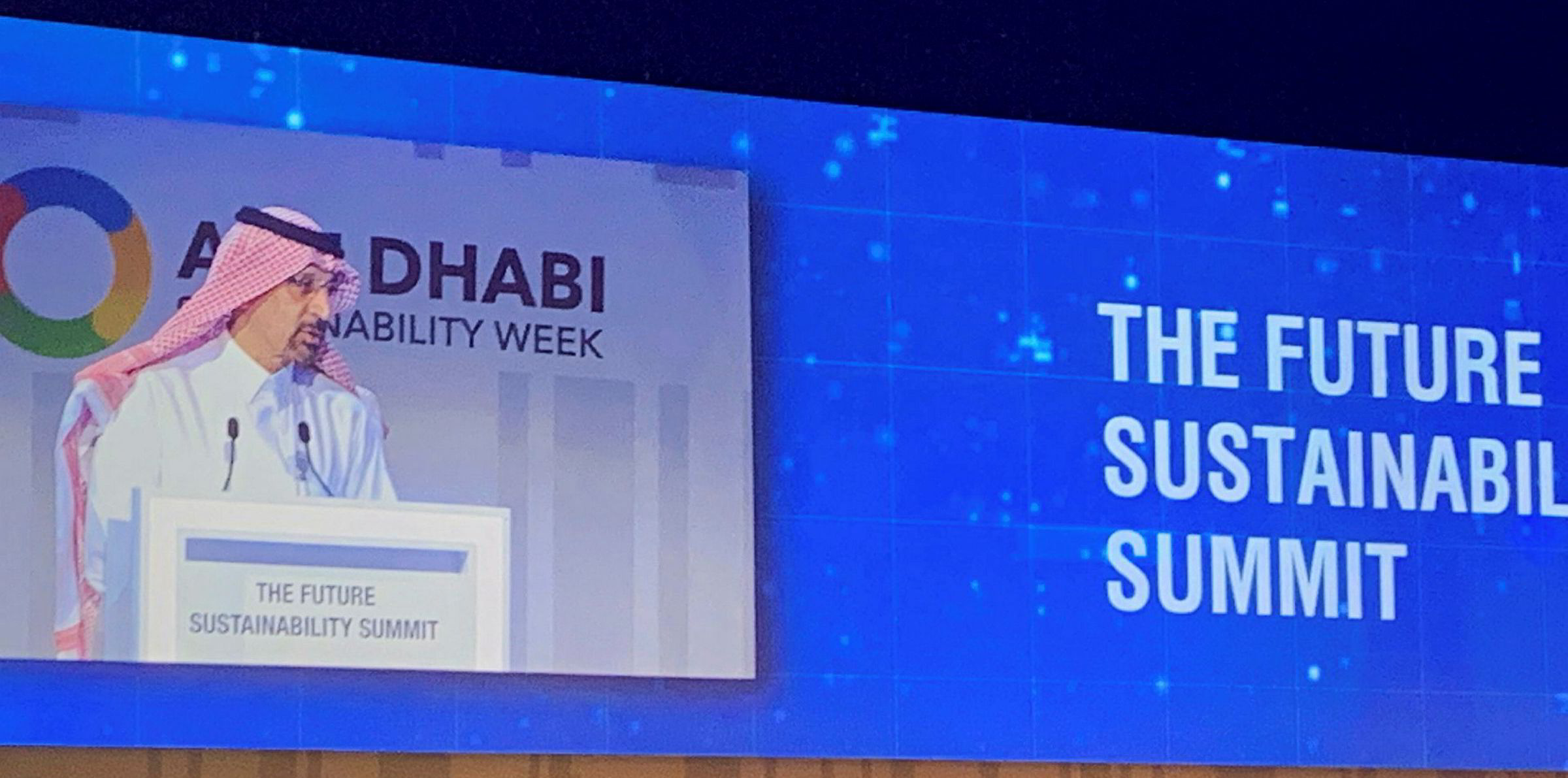Saudi Arabia plans to develop about 60GW of renewables over the next 10 years, including 40GW of PV and 16GW of wind, the kingdom’s energy minister confirmed – while also warning of “chaos” if the world abandons oil and gas too quickly.
The plan is designed to spur renewables deployment at a “pace rarely seen in the region” in the oil-rich state, Khalid bin Abdulaziz Al-Falih said during the opening of the Future Sustainability Summit in Abu Dhabi.

